Haiti has experienced decades of insecurity and political instability, but 2021 has been alarming. The October kidnapping of 17 American and Canadian missionaries and their Haitian driver is the highest-profile example of skyrocketing kidnappings that have affected some 782 people this year, 30% of them since September 1. These kidnappings extend to busloads of people being snatched for ransom. Average people fear for their safety, and the state has shown itself impotent in the face of over 90 gangs that compete for resources and territory.
These gangs have become quasi-warlords, controlling some 60% of the country’s territory and abetting drug trafficking. The July assassination of President Jovenel Moïse deepened a security and political crisis that had worsened since the departure of United Nations troops in 2017. Recent months have shown the strength of gangs, as the G9 gang coalition imposed a month-long fuel blockade that brought the capital to a standstill. The blockade, eased on November 12, impeded food deliveries in this desperately poor country.
The U.S. and other international actors have an interest in responding to the humanitarian crisis and its regional migratory and security consequences. The immediate priority is restoring security to the country and providing a foundation for stable governance with reduced corruption.
The current U.S. approach to the crisis has centered on only two options: either sending U.S. military forces or letting Haitians sort things out themselves. Deploying U.S. forces unilaterally is not realistic. The Biden administration has ruled out such a deployment despite Haiti’s request after the assassination of Moïse. Its prevailing answer seems to be to let Haitians manage themselves out of the crisis.
But doing nothing is increasingly not an option. Political parties have relied upon some gangs and permitted rampant impunity, illustrating the depth of corruption of the current system.
The most sensible path forward for international actors is to authorize an expanded U.N. operation to include a small military component but modify it to overcome past limitations. The 13-year U.N. Stabilisation Mission in Haiti (MINUSTAH) successfully tackled some of the security problems besieging the country today. Before and after a coup ousted elected President Jean-Bertrand Aristide in 2004, gangs exercised considerable territorial control in Port-au-Prince, especially its largest slums. The U.N. mission launched well-planned operations into these huge neighborhoods, capturing or killing several gang leaders and enabling weak government forces to reestablish control.
A U.S. Institute of Peace study attributed the “resounding success” of these operations to the effort by the Brazilian military forces, working with various U.N. police units, to use the force necessary to clear neighborhoods of gang leaders. Brazilian troops conducted foot patrols, engaged with community leaders and members on the street, and developed extensive intelligence networks that were unprecedented at the time for U.N. peacekeeping. In a 2007 poll, 67% of respondents in Haiti credited the U.N. with improved security.
A key objection to deploying international troops to Haiti today is that neither prior U.S.-led multinational forces nor prior U.N. missions left behind sustainable systems of justice and security. What is to prevent a new U.N. mission from being an expensive stopgap that results in another period of crisis and violence upon its withdrawal?
Several measures could ensure that a new U.N. mission would contribute to sustainable stability in Haiti. First off, the troops deployed would need to adopt the same approach of earlier Brazilian deployments in using sufficient force and working closely with the population to dismantle criminal gangs. More importantly, international civilians would need to have more power to certify Haitian judges, prosecutors, and police officials to vet out the corrupt and abusive ones. Past programs of training and advice simply empowered corrupt officials left in place. Support for restoring a strong, independent Inspector-General’s office for the Haitian National Police should be a priority to ensure that newly vetted police officers do not engage in abuses, gang association, or drug trafficking.
The U.N. should draw on recent hybrid models of national/international missions, such as the U.N.-backed International Commission against Impunity in Guatemala, to work side-by-side with vetted Haitian prosecutors and investigators to prepare cases. A specialized, vetted prosecutorial unit could try these cases in anti-corruption Haitian courts with vetted judges, as occurred in Guatemala and Honduras with positive results.
Prior international efforts have missed a key point: the importance of getting a political settlement among the invested elites. Instead, the U.S. and its allies have looked excessively to elections to settle political differences, then deferred to elected leaders who subsequently plunder the state, form illicit gangs, and distort democracy to cement their power.
In recent months, Haitian civil society organizations have formed a platform charting an inclusive, sustainable political dialogue and process to get beyond the divisions among the prevailing political parties. This platform’s proposals of an inclusive, interim government could break the long pattern of exclusion and division by Haiti’s elites. The U.S. and other international actors should back this opportunity to construct a new political foundation.
Finally, past U.N. missions became vectors for the transmission of disease — over 10,000 Haitians died of cholera inadvertently introduced by Nepalese soldiers — and instances of sexual abuse and exploitation. The U.N. and its troop-contributing countries must prevent such incidents and hold accountable their soldiers and civilians.
Haitians unfortunately need international support at this time. A new U.N. mission is imperative. But it must be strengthened in ways that support civil society’s aspirations and will have a positive and sustainable impact on Haiti’s stability and institutions.

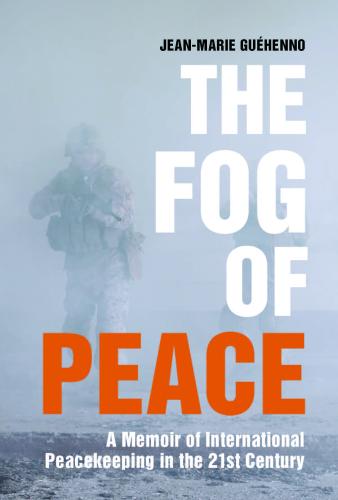

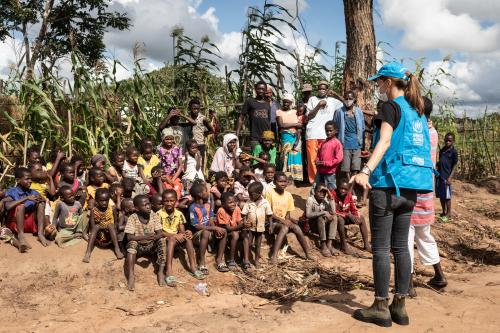
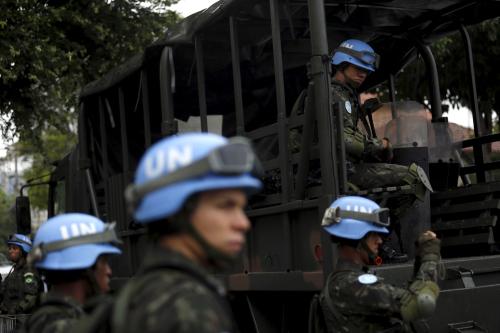
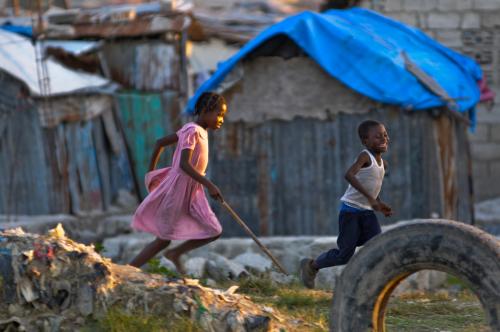

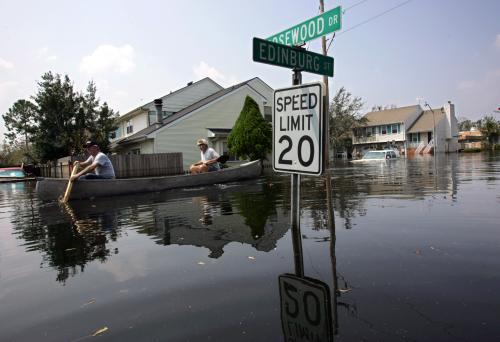
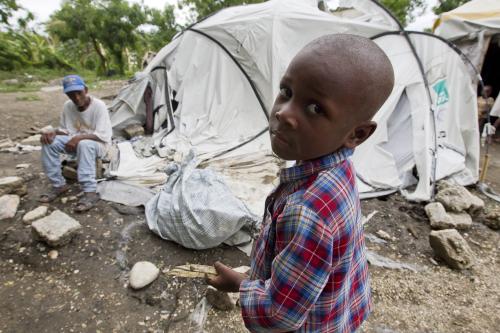

Commentary
Haiti needs a new, improved UN mission
December 2, 2021